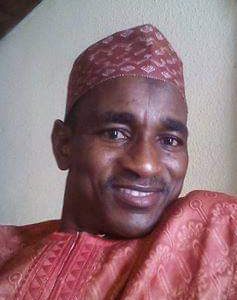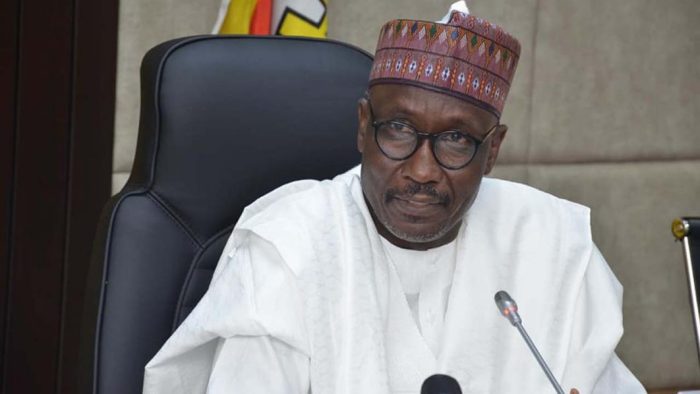“I do not ask for mercy,
I do not ask for pardon,
I demand justice.”
— Ali Bhutto of Palestine
Regardless of tribe, religion, region, culture, norms, status, class, or political affiliation, no one is a second-class citizen as long as they are Nigerian.
The media and public discussions have been dominated by the recent events in Uromi, Edo State, where innocent Nigerians were attacked, killed, and burned. This act is uncalled for—it is purely barbaric, unjust, and inhumane. Such actions demand justice.
Anyone supporting this wicked act must stop trying to justify this inhumanity. No amount of rhetoric, logic, or empty words can erase the pain of those innocent lives lost in Uromi.
The truth is, those who were killed in Uromi were not bandits. They were poor citizens from the North, the same region being targeted by the bandits and kidnappers that Southerners also fear.
The deceased (hunters) had no business with kidnappers or bandits who terrorize Northerners daily. There is ample evidence, both historical and media-based, proving the difference between local hunters and the criminals responsible for kidnappings and killings across Nigeria’s highways, camps, farms, and forests.
It is important to understand that not all Northerners are Hausa or Fulani or even Muslim. Likewise, not all Fulani are cattle herders. Although the Fulani traditionally live in the bush due to their livestock, they are not hunters. Hunting is a core aspect of Hausa culture—many Hausa hunters travel beyond their home territories in search of game.
A typical Hausa man does not rear cattle but raises dogs and fabricates locally made guns for hunting, a practice inherited from his ancestors. On the other hand, the Fulani are not typically farmers. However, throughout history, the Hausa and Fulani have coexisted, exchanging cultural values and traditions.
The insecurity plaguing the South due to kidnappers and bandits is far worse—perhaps 200 times more severe—in the North. This is a crisis the government has failed to address for too long.
It is crucial to note that the daily killings in the North by Boko Haram, bandits, and kidnappers are not being carried out by the Fulani who have lived peacefully among us for centuries. While some individuals among the Fulani and Hausa may have joined banditry, this does not mean the entire ethnic group is responsible.
Banditry and kidnapping, which initially started in the South, have now become criminal enterprises involving people from all backgrounds, regardless of tribe, religion, or region. It is Boko Haram and some bandit groups that deliberately create chaos and instill fear in peaceful communities.
Due to these criminal activities, many Southerners, including those in Edo State, now assume that every Northerner is a bandit or criminal simply because of their language or appearance. Similarly, in the 1980s, Northerners believed that every Bendel man, Benin (present day Edo and Delta states) was an armed robber due to the notorious exploits of Lawrence Anini.
The truth is, bandits spare no one—they attack their neighbors, business partners, in-laws, and even relatives. Whether North or South, we all suffer from insecurity, inflation, and the loss of innocent lives.
Nigeria belongs to all of us. No tribe, clan, ethnicity, or region is superior to another. Justice must be served for the senseless killings in Uromi. Remember, whatever you cannot tolerate, bear, or wish for yourself, do not inflict upon others—whether they are from the Northwest, Northeast, North Central, Southwest, Southeast, or South-South.
Another issue being raised is the comparison between the case of Deborah in Sokoto and the recent Uromi killings. To be honest, these two incidents are entirely different. How can you compare the death of one person to the brutal murder of multiple innocent souls? Deborah knowingly provoked the situation that led to her fate. No one dares to insult Islam without consequences—even in the Western world, people are cautious and respectful of religious sentiments. I urge you to leave Islam and Muslims alone with their beliefs.
My fellow Nigerians, both at home and in the diaspora, should stop supporting jungle justice. I implore you to join in condemning this act. Innocent people were attacked, killed, and burned alive for no reason other than being Hausa or Northerners.
Almost all well-meaning Nigerians have condemned this act. We demand justice for these helpless, innocent victims. The false accusations branding them as kidnappers are deeply disturbing and tragic. Such incidents highlight the need for greater awareness, education, reorientation, and the promotion of tolerance and understanding. Fair hearing and thorough investigations must be carried out, and no individual or group should take the law into their own hands—after all, the police and the courts exist for justice.
Authorities must thoroughly investigate the Uromi incident to bring the perpetrators to justice and implement proper measures to prevent future occurrences. Compensation for the victims’ families is not enough—justice must be served.
The call by Kano State Governor H.E. Kabir Yusuf (Abba Gida-Gida) for the public parading of the culprits is a valid one. It would help verify whether those arrested are indeed the perpetrators and ensure transparency in the process. In the past, there have been allegations of inmates being paraded as criminals, so publicizing the real suspects would ease tensions and prove that the government is taking the right steps.
In light of these issues, why is it that every matter related to Kano is now being politicized or trivialized? The Edo State governor was supposed to travel to Kano to offer condolences to the government and people over the brutal lynching of 16 Kano indigenes in Uromi—a commendable move. However, he was instead diverted to Abuja for a political photo-op with the Deputy Senate President, Senator Barau, before proceeding to Kano. This is disappointing. May God help democracy thrive in Nigeria as it should.
Lastly, those calling for Nigeria’s breakup should reconsider. Separation is not the solution to Nigeria’s problems. Instead, we must unite, love, and support one another. Stop the insults, mockery, and division. We must learn patience, tolerance, understanding, faithfulness, honesty, and commitment to making Nigeria better.
We should pray for our country’s unity, peaceful coexistence, mutual understanding, political stability, and positive societal changes.
Remember, Ojukwu tried to divide Nigeria but failed. He is now gone. Gideon Okar attempted it and was in handcuffs within 24 hours—facing a firing squad a month later. Gani Adams and Sunday Igboho tried but fled. Nnamdi Kanu made noise, ran to the UK, and was eventually returned to Nigeria, ending up in Kuje Prison.
The truth is, if anyone were to divide Nigeria, it would be a Northerner—but we won’t, because we believe in unity. The North is educated, wealthy, politically aware, and has the landmass and population to stand alone as a country, but we choose unity, tolerance, and coexistence. Our brothers in the South should stop provoking us.
I leave you with the words of Alexander the Great:
“I am not afraid of an army of lions led by a sheep; I am afraid of an army of sheep led by a lion.”
Adamu writes from Kafin-Hausa, Jigawa State.




